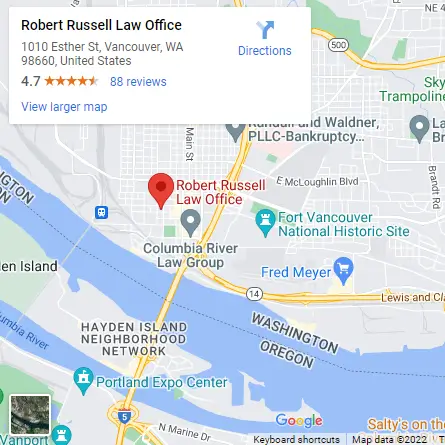Planning Ahead for the Future
Some people mistakenly assume that a last will and testament is the only estate planning tool available to them. This is not the case. Although drafting will help transfer or distribute the inheritance to the deceased person’s heirs, there are other options that you could look into.
Indeed, setting up a last will and testament enables a testator to transfer or to distribute estate assets to a surviving spouse, child, grandchild, or another family member. However, with it are disadvantages that may only become apparent when you die.
Well-trained and knowledgeable Vancouver estate planning attorneys can explain to you other estate planning documents. Depending on your particular circumstance, establishing a trust might be an excellent step to take.
What this article will focus on are the following:
- Purposes of setting up a revocable trust
- The role of initial and successor trustees
- Supervision from hands-on estate planning attorneys
…
Purposes of Setting Up a Trust
Many people decide to set up a trust because they want their wealth to grow for the next generations continuously. This is essentially done by appointing trustees who will manage and administer the trust estate.
From the perspective of the one who creates a trust, it will be good to know that income from trust assets, though taxable, is yours throughout the remainder of your lifetime. Until you are deceased, none is transferred to any beneficiary of a trust who you decided to appoint, be it a surviving spouse or would-be heirs. Additionally, if you opted for revocable trusts, the legal documents involved can be amended or revoked. This means you could keep a certain level of control over the property in a trust.
Under relevant trusts law, setting up a trust can determine how the property in trust shall be managed when you die. Under this estate plan, any bank account, personal property, real property, or investment held in trust is no longer owned by the grantor but owned by the trust. Estate assets are essentially placed in the name of the trust.
Pursuant to relevant trust laws, the grantor appoints a specific trustee who will be managing and administering assets. In a trust you set up, the trustee can be a loved one, a bank, or a trust company. If applicable, trust rules allow grantors themselves to be appointed as trustees.
…
The Role of Initial and Successor Trustees
If you act as the initial trustee, you are to manage, invest, and distribute assets in a trust account. However, when you can no longer make decisions on your own and manage, invest, or handle day-to-day tasks associated with trust property, your successor trustee takes over. Following whatever you wrote down trust instructions, the said person or entity can step in and continue to manage and invest the trust while you are still alive.
Once you pass away, your successor trustee will be in charge of managing, investing, and using property held in trust for the trust’s beneficiaries. Under relevant trust law, the successor trustee that you included in a trust will be able to carry out the decedent’s wishes without the need to go to court.
Another reason most people are keen on creating a revocable trust is the flexibility it can offer. Suppose you appointed yourself as the initial trustee, and you no longer want to be responsible for managing assets in the name of the trust. In that case, you may have your successor take over the property in trust, you may opt to resign, and your successor will step in.
Essentially, your successor trustee has a fiduciary duty to manage your assets to benefit trust beneficiaries. Depending on state law and if your trust documents allow it, you may fire your successor and appoint someone else to manage assets in a trust account. This level of flexibility can rarely be seen in other estate planning documents.
…
Seek Legal Help from Hands-on Estate Planning Attorneys
Before you create a trust, contact an estate planning attorney from a law office that specializes in trusts and estates. A living trust is advantageous for your children, grandchildren, or trust beneficiary, particularly in avoiding probate. If a decedent establishes a trust, the deceased’s assets will no longer be brought to court and probated after death.
Contact a trusted Washington estate planning law firm to learn more about asset protection in light of different types of trusts (revocable or irrevocable living trust). A competent Vancouver estate planning attorney can likewise answer legal questions on living wills, living trusts, succession, probate, and estate taxes. Call us at Robert Russell Law Office to consult with a credible local attorney or avail of reliable estate planning services.







